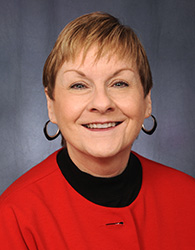 A notable gender scholar and co-author of textbooks used in Missouri State communication classes will be on campus next week to discuss campus sexual assaults and the communication of consent — an issue facing college students across the world.
A notable gender scholar and co-author of textbooks used in Missouri State communication classes will be on campus next week to discuss campus sexual assaults and the communication of consent — an issue facing college students across the world.
Communication of consent on college campuses
Dr. Diana K. Ivy will be featured in an Oct. 5 colloquium. She is a communication professor at Texas A&M University—Corpus Christi.
Her books “GenderSpeak” and “Nonverbal Communication for a Lifetime” are used in the COM 307 Gender Communication and COM 325 Nonverbal Communication courses, respectively.
Ivy is on sabbatical this semester visiting universities across the U.S., including Missouri State, to explore approaches to educating students about sexual safety. The work contributes to an upcoming book chapter she is authoring on the subject, specifically about the communication of consent.
 Scholar answers questions about research, upcoming visit
Scholar answers questions about research, upcoming visit
Ivy answered a few questions about her upcoming visit to MSU and her research.
What can students expect to hear from you during the colloquium?
I am a gender communication specialist (with a book on that topic), so I’ll probably speak about gender communication, communication in relationships, and will no doubt mention the study of consent I’m conducting.
Describe that study and what questions you hope to answer with it.
My sabbatical research project centers on the communication of consent in sexual or intimate situations, with the goal of enhancing students’ sexual safety. Too many students are ill-equipped to communicate (verbally and nonverbally) what they want and don’t want sexually, so I’m studying all the issues surrounding consent.
What do you hope to learn during your visit to our campus?
University personnel, such as faculty, staff and administrators, are committed to educating students about life experience, not just “book learning.” So I know that most universities have sincere attempts to enlighten students about sexual safety, but some approaches work better than others. I’m hoping to get a better understanding of the range of efforts out there, with Missouri State being one approach to examine.
What other campuses have you visited so far?
For this particular three-week road trip, I’m visiting also Texas Tech University and Western Kentucky University. More may be scheduled for other months. The more approaches I investigate, the more educated I become on the issue of communicating consent. In March 2016, I head to Australia, specifically the University of South Australia in Adelaide. Australia has some innovative and interesting educational programs for young people.
What are some of the challenges and difficulties you’re finding when it comes to communication of consent?
WOW — so many! As much as we think we’re open about this and think that students are pretty savvy and sophisticated now compared to generations past, I’m amazed at how little students actually know about consent, how it operates, what the laws are, etc. Some examples:
- Some students think that if a sexual partner is too drunk or high to express verbal consent, or is passed out and can’t verbalize anything, the lack of consent is some form of consent — meaning, not getting a “no” is the same as getting a “yes.” Yikes!
- Some of them think that if you go ahead and have sex with that person (who’s too drunk to resist), it can’t be considered rape. Yikes, again!
- Some students hold to the antiquated notion that consent can be given nonverbally — with mere actions and nonverbal responses to a partner. They don’t realize the need for verbal consent.
- They also don’t know HOW to verbally consent and seek same from a partner, unless they’ve been very well coached by a parent or educator.
- Many still think that expressing one’s sexual desires and boundaries makes you a nerd or “ruins the mood,” which is a very scary attitude to have, given the extent of the sexual assault problem.
What are some ways our nation’s colleges can prepare students for the potential for sexual assault?
Some universities have proactive programs, like the “Define Your Line” program at Texas Tech, but in general, I don’t think many of the other programs have enough of a communication focus, meaning teaching all students — not just the confident, assertive, more sexually experienced ones — how to be proactive in their communication regarding their sexual selves.
Harvard has an extraordinary peer education and peer counseling program — one of the best in the country — but they’ve had serious issues up there, too. Things that have hit the headlines.
Some audience members will be students who study (or will study) your textbooks in class. Do you have any advice on what to take away from those books for school and their careers?
We know how busy students are these days and how over-committed many of them are, such that they leave little time for the reading that we college professors would like for them to do! They calculate how much time they’ll put into everything — activities, relationships, jobs, studying, etc.
I guess my advice would be to slow down a bit or commit more time to a deeper read (and a questioning of the material), because college goes by so fast! You need to soak it all in (in my humble opinion!). I worry that we have plenty of compliant students, but not as many deep or critical thinkers.
